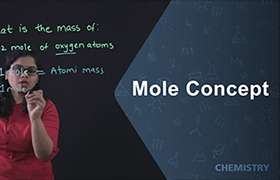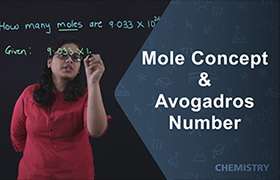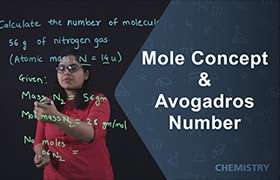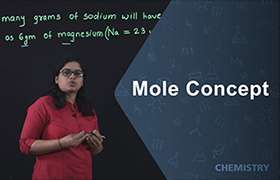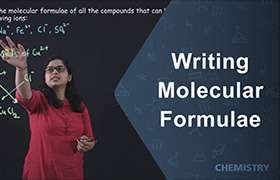CBSE Class 9 Answered
What does the law of conservation of mass state? please elaborate.
Asked by Gitartha | 19 Oct, 2012, 11:13: PM
The Law of Mass Conservation states that mass can neither be created nor destroyed.
It was established in 1789 by French Chemist Antoine Lavoisier.
The law states that mass is neither created nor destroyed in any ordinary chemical reaction.
Or more simply, the mass of substances produced (products) by a chemical reaction is always equal to the mass of the reacting substances (reactants).
E.g., 1.00g carbon + 5.34g sulphur ---> 6.34g carbon disulphide
and
2.00g carbon + 10.68g sulphur -----> 12.68g carbon disulphide
E.g., 1.00g carbon + 5.34g sulphur ---> 6.34g carbon disulphide
and
2.00g carbon + 10.68g sulphur -----> 12.68g carbon disulphide
Answered by | 20 Oct, 2012, 10:24: AM
Application Videos
Concept Videos
CBSE 9 - Chemistry
Asked by rajputanaji290 | 03 Oct, 2023, 09:30: PM
CBSE 9 - Chemistry
Asked by muditsharma287 | 09 Mar, 2023, 10:10: PM
CBSE 9 - Chemistry
Asked by shivalaxmi0205 | 08 Mar, 2023, 07:46: PM
CBSE 9 - Chemistry
Asked by shivalaxmi0205 | 08 Mar, 2023, 07:43: PM
CBSE 9 - Chemistry
Asked by jssjj | 19 Jan, 2023, 07:25: PM
CBSE 9 - Chemistry
Asked by mohammedhaqqani.6b | 14 Jun, 2022, 02:51: PM
CBSE 9 - Chemistry
Asked by gauravsingh36428 | 14 Mar, 2022, 07:44: PM
CBSE 9 - Chemistry
Asked by jiyajthakor | 28 Feb, 2022, 07:03: PM
CBSE 9 - Chemistry
Asked by gillsaabjashanpreetsingh3 | 16 Jan, 2022, 01:23: PM
CBSE 9 - Chemistry
Asked by prachisharma772007 | 16 Jan, 2022, 11:12: AM

